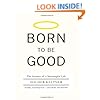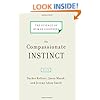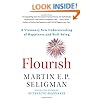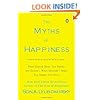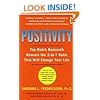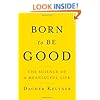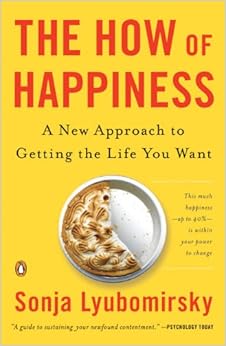
The How of Happiness
and over one million other books are available for Amazon Kindle. Learn more


Flip to back
Flip to front


The How of Happiness: A New Approach to Getting the Life You Want Paperback – December 30, 2008
See all 9 formats and editions
Hide other formats and editions
| Amazon Price | New from | Used from |
|
Audio CD, Abridged, Audiobook
"Please retry"
|
—
|
$78.01 | $34.99 |

$11.20
FREE Shipping on orders over $35.
In Stock.
Ships from and sold by Amazon.com.
Gift-wrap available.
NO_CONTENT_IN_FEATURE
Start reading The How of Happiness on your Kindle in under a minute.
Don't have a Kindle? Get your Kindle here, or download a FREE Kindle Reading App.
Don't have a Kindle? Get your Kindle here, or download a FREE Kindle Reading App.
Best Books of the Month
Want to know our Editors' picks for the best books of the month? Browse Best Books of the Month, featuring our favorite new books in more than a dozen categories.
Want to know our Editors' picks for the best books of the month? Browse Best Books of the Month, featuring our favorite new books in more than a dozen categories.
Product Details
Would you like to update product info or give feedback on images?.
|
Editorial Reviews
Review
"Finally we have a self-help book from a reputable scientist whose advice is based on the best experimental data... The How of Happiness is smart, fun, and interesting--and unlike almost every other book on the same shelf, it also happens to be true."
-Daniel Gilbert, Harvard University professor of psychology and author of Stumbling on Happiness
"A guide to sustaining your newfound contentment." --Psychology Today
"Lyubomirsky's central point is clear: a significant portion of what is called happiness . . . is up for grabs. Taking some pages out of the positive psychology playbook, she coaches readers on how to snag it."
-The New York Review of Books
"Is lasting happiness attainable or a pipe dream? For the last eighteen years, University of California-Riverside professor of psychology Sonja Lyubomirsky has studied this question, and what she reports might even sway pessimists."
-U.S. News & World Report
"The right place to look for science-based advice on how to become happier."
-Martin Seligman, author of Learned Optimism
-Daniel Gilbert, Harvard University professor of psychology and author of Stumbling on Happiness
"A guide to sustaining your newfound contentment." --Psychology Today
"Lyubomirsky's central point is clear: a significant portion of what is called happiness . . . is up for grabs. Taking some pages out of the positive psychology playbook, she coaches readers on how to snag it."
-The New York Review of Books
"Is lasting happiness attainable or a pipe dream? For the last eighteen years, University of California-Riverside professor of psychology Sonja Lyubomirsky has studied this question, and what she reports might even sway pessimists."
-U.S. News & World Report
"The right place to look for science-based advice on how to become happier."
-Martin Seligman, author of Learned Optimism
About the Author
SONJA LYUBOMIRSKY is professor of psychology at the University of California, Riverside. She received her B.A. from Harvard University and her Ph.D. in social psychology from Stanford University. Lyubomirsky and her research have been the recipients of many honors, including the 2002 Templeton Positive Psychology Prize and a multiyear grant from the National Institute of Mental Health. She lives in Santa Monica, California, with her family. Her next book, The Myths of Happiness, will be published by The Penguin Press in January 2013.
More About the Author
Sonja Lyubomirsky, Ph.D., is professor of psychology at the University of California, Riverside. She received her B.A., summa cum laude, from Harvard University and her Ph.D. in social psychology from Stanford University. Her research - on the possibility of permanently increasing happiness -- has been honored with a Science of Generosity grant, a John Templeton Foundation grant, a Templeton Positive Psychology Prize, and a million-dollar grant from NIMH. Lyubomirsky's 2008 book, The How of Happiness (Penguin Press) has been translated into 19 languages, and her forthcoming book, The Myths of Happiness, will be released on January 3, 2013. Her work has been written up in hundreds of magazine and newspaper articles, and she has appeared in multiple TV shows, radio shows, and feature documentaries in North America, South America, Asia, the Middle East, and Europe. Lyubomirsky lives in Santa Monica, California, with her family.
Customer Reviews
Most Helpful Customer Reviews
104 of 107 people found the following review helpful
By
Charlie
on February 6, 2008
Format: Hardcover
Comment
Sending feedback...
About: Science-based ways of how to increase happiness
Review: Right off the bat, Lyubomirsky points out that we can only control 40% of our happiness (with half being genetic and 10% being environmental) but she suggest a bunch of techniques that have the backing of studies (which she cites) that have been shown to increase happiness. She notes that all techniques aren't for everyone so she encourages readers to choose the ones that fit their lifestyles. These techniques include practicing gratitude, forgiveness, goal setting, spirituality, exercise and living in the present (among other things). Ideas of of how to put these things to use are clearly spelled out. I really enjoyed this book, sources cited, great topic, well written, engaging, actually applicable to life.
Some random things I learned:
Marriage increases happiness for 2 years, then it returns to normal levels
Happiness also tends to eventually return to set point levels after both catastrophes and successes
People get happier with age
No one thing brings happiness
Overthinking (i.e. in times of anxiety, stress or insecurity) isn't good for you and just makes things worse
Helping others makes people happy
Hugging is good for happiness
The happier the person, the less he or she pays attention to what others around are doing
Review: Right off the bat, Lyubomirsky points out that we can only control 40% of our happiness (with half being genetic and 10% being environmental) but she suggest a bunch of techniques that have the backing of studies (which she cites) that have been shown to increase happiness. She notes that all techniques aren't for everyone so she encourages readers to choose the ones that fit their lifestyles. These techniques include practicing gratitude, forgiveness, goal setting, spirituality, exercise and living in the present (among other things). Ideas of of how to put these things to use are clearly spelled out. I really enjoyed this book, sources cited, great topic, well written, engaging, actually applicable to life.
Some random things I learned:
Marriage increases happiness for 2 years, then it returns to normal levels
Happiness also tends to eventually return to set point levels after both catastrophes and successes
People get happier with age
No one thing brings happiness
Overthinking (i.e. in times of anxiety, stress or insecurity) isn't good for you and just makes things worse
Helping others makes people happy
Hugging is good for happiness
The happier the person, the less he or she pays attention to what others around are doing
Thank you for your feedback.
If this review is inappropriate, please let us know.
Sorry, we failed to record your vote. Please try again
368 of 404 people found the following review helpful
By
goatcurry
on June 27, 2009
Format: Paperback
5 Comments
Sending feedback...
I tried to follow the suggestions in this book. First of all, if you really want to use this as a how-to guide, its format is not conducive to that. The very few specific actions it recommends are buried in text that is full of anecdotes and studies that are supposed to sell you on the thought that doing these actions will make you happy. Also, according to the author the solution to all of your problems seems to be writing in journals: your "Best Possible Selves" journal in which you are trying to cultivate optimism by imagining what your life will be like one it is exactly the way you want it to be, your "Goals and Subgoals Journal," your "Trauma" journal, in which you write about traumatic experiences you've had as a way of coping with stress, a "Gratitude journal" in which you are writing what you are grateful for, etc etc etc. While I can see how writing can help people become more optimistic and grateful, lighter in spirit and more focused, the author does not give specific advice on what questions to ponder while writing.
I felt after reading this book (several times) that it was a less helpful, more commercialized version of a much better, more helpful and more specific book which was written several years ago, "The Emotional Toolkit" by Darlene Minnini (also a PhD from California, although from UCLA). The Emotional Toolkit cites the same studies that The How of Happiness cites and more, but is more focused on the reader and what he or she can do, not exclusively on selling the idea of what they should do. It gives specific suggestions, which How does not; such as listing questions to ask yourself while writing in a journal, for example, and questions to ask yourself to shift your thoughts from negative to neutral (instead of How's simply telling you to "stop" the negative thoughts because negative thoughts are bad for you).
So, if you really want to help yourself, I would not go for How of Happiness.
I felt after reading this book (several times) that it was a less helpful, more commercialized version of a much better, more helpful and more specific book which was written several years ago, "The Emotional Toolkit" by Darlene Minnini (also a PhD from California, although from UCLA). The Emotional Toolkit cites the same studies that The How of Happiness cites and more, but is more focused on the reader and what he or she can do, not exclusively on selling the idea of what they should do. It gives specific suggestions, which How does not; such as listing questions to ask yourself while writing in a journal, for example, and questions to ask yourself to shift your thoughts from negative to neutral (instead of How's simply telling you to "stop" the negative thoughts because negative thoughts are bad for you).
So, if you really want to help yourself, I would not go for How of Happiness.
Thank you for your feedback.
If this review is inappropriate, please let us know.
Sorry, we failed to record your vote. Please try again
167 of 189 people found the following review helpful
By
Beth Waddel
on January 13, 2008
Format: Hardcover
6 Comments
Sending feedback...
As a psychologist for twenty years, it has been drilled into my head that as psychologists we are both scientists and practitioners. Having been a clinician for the majority of my career as well as a book-a-holic, I have been anxiously awaiting Lyubomirsky's book. As Gilbert accomplished in Stumbling on Happiness, Lyubomirsky accomplished in this fine piece of work, a wonderful marriage of both the "science" of psychology as well as the "practical" aspects of psychology. A dream for scholars and clinicians...what a fine contribution this book is to our field.
Lyubomirsky has created a work which will be interesting, challenging, and useful to researchers, practitioners, and the general reader as well. Her book answers the questions about happiness by backing up her assertions with a fine review of the empircial literature. "Harumph", no more touchy-feely stuff for the "soft science of psychology"...Lyubomirsky has created a book that will appeal to both my neighbors as well as my colleagues. This book would be appropriate in a psychology graduate course or a local reading group....
Her tone is deliciously real and edgy, her presentation delightful and well-thought out, and her suggestions concrete, specific, realistic and engaging.
There is something for everyone in this book.
I hate goals, I rebel against goals, tell me I "should" and I certainly won't. Well, after reading this book, taking the tests, I have actually done some goal setting that I might find I can complete without gritting my teeth and gutting it out.
Thanks, Sonja, I will be thinking of you tomorrow at 6am as I head out to the gym.
Beth Waddel, PhD.
Lyubomirsky has created a work which will be interesting, challenging, and useful to researchers, practitioners, and the general reader as well. Her book answers the questions about happiness by backing up her assertions with a fine review of the empircial literature. "Harumph", no more touchy-feely stuff for the "soft science of psychology"...Lyubomirsky has created a book that will appeal to both my neighbors as well as my colleagues. This book would be appropriate in a psychology graduate course or a local reading group....
Her tone is deliciously real and edgy, her presentation delightful and well-thought out, and her suggestions concrete, specific, realistic and engaging.
There is something for everyone in this book.
I hate goals, I rebel against goals, tell me I "should" and I certainly won't. Well, after reading this book, taking the tests, I have actually done some goal setting that I might find I can complete without gritting my teeth and gutting it out.
Thanks, Sonja, I will be thinking of you tomorrow at 6am as I head out to the gym.
Beth Waddel, PhD.
Thank you for your feedback.
If this review is inappropriate, please let us know.
Sorry, we failed to record your vote. Please try again
91 of 103 people found the following review helpful
By
F. Bailey Norwood
on January 26, 2008
Format: Hardcover
Verified Purchase
Comment
Sending feedback...
I have read almost every non-technical book written on the psychology of happiness and positive psychology. While they are all good, The How of Happiness is by far the best.
This is no generic self-help book with off-the-cuff suggestions stemming from the authors' own life or anecdotal evidence. Every single claim Dr. Lyubomirsky makes is backed by scientific evidence. Moreover, the book's content is supported by peer-reviewed journal articles. While I am an economist, and not a psychologist, I do know which journals are the most prestigious, and the bulk of this book is based on publications from the most prestigious psychological journals.
To illustrate how highly I recommend this book, consider this. I personally spent over $100 buying multiple copies of the book and giving them to several of my students, in hopes they will read it. If they do read it, they are certain to live happier lives.
I am naturally a very happy person, and can say without reservation that this book has made me happier. My friends have found it surprising that someone as happy as me would be reading a book on happiness. After hearing my profound respect for this book, they too purchased it and found it a life-changing experience.
Of the many reasons we do science, one is to improve the lot of humans, to become a happier society. We are fortunate to live in an age when science has uncovered the science of happiness, and fortunate to have Dr. Lyubomirsky to communicate this science to a non-technical audience so clearly. In my opinion, this book is the pinnacle of science.
This is no generic self-help book with off-the-cuff suggestions stemming from the authors' own life or anecdotal evidence. Every single claim Dr. Lyubomirsky makes is backed by scientific evidence. Moreover, the book's content is supported by peer-reviewed journal articles. While I am an economist, and not a psychologist, I do know which journals are the most prestigious, and the bulk of this book is based on publications from the most prestigious psychological journals.
To illustrate how highly I recommend this book, consider this. I personally spent over $100 buying multiple copies of the book and giving them to several of my students, in hopes they will read it. If they do read it, they are certain to live happier lives.
I am naturally a very happy person, and can say without reservation that this book has made me happier. My friends have found it surprising that someone as happy as me would be reading a book on happiness. After hearing my profound respect for this book, they too purchased it and found it a life-changing experience.
Of the many reasons we do science, one is to improve the lot of humans, to become a happier society. We are fortunate to live in an age when science has uncovered the science of happiness, and fortunate to have Dr. Lyubomirsky to communicate this science to a non-technical audience so clearly. In my opinion, this book is the pinnacle of science.
Thank you for your feedback.
If this review is inappropriate, please let us know.
Sorry, we failed to record your vote. Please try again
